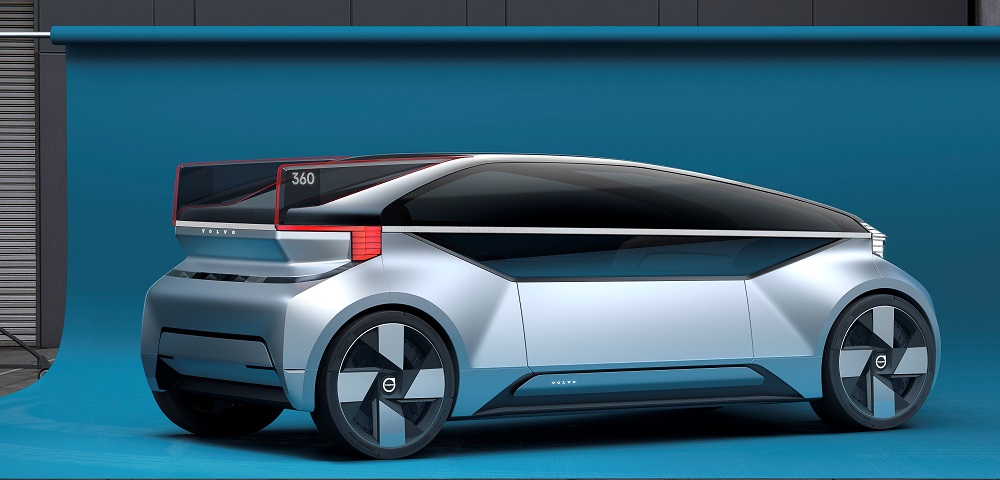
Volvo's new 360 autonomous concept looks towards modifying travel.
The concept reimagins the work-life balance and the future of cities as it aims to replace short haul travel.
September 7 ,2018
Imagine a world in which you travel long distances without the need for airports. A world in which you can avoid airport security, hours of queuing and waiting, and noisy, cramped airliners. What if, instead, you could take your own first-class private cabin that picks you up at home and takes you from door to door? It is this vision for the future of autonomous travel that Volvo Cars reveals today with its new Volvo 360c concept, a holistic view of a future of travel that is autonomous, electric, connected and safe. It could open up new growth markets for Volvo Cars, for example in the multi-billion dollar domestic air travel industry. The basis of the 360c is a fully autonomous, fully electric car without a human driver. The concept capitalises on the freedom in design afforded by the absence of a steering wheel and a combustion engine, providing the ability to reimagine the traditional placement of passengers in rows of two or three.
The 360c presents four potential modes of driving this autonomous vehicle, they are : a sleeping environment, mobile office, living room and entertainment space which all reimagine the way people travel. It also introduces a proposal for a global standard in how autonomous vehicles can safely communicate with all other road users. Due to these abilities it represents a potentially lucrative competitor to short distance air travel, a multi-billion dollar industry comprising airlines, aircraft makers and other service providers. Especially shorter routes where the distance between origin and destination is around 300 kilometres are prime candidates for disruption by an alternative mode of travel. For example, within Maharashtra, one of the most prominient states in India, over 150 million travellers embarked on domestic flights and India's domestic air travel industry is worth millions of dollars in revenue. Several busy domestic air routes, such as Mumbai to Pune, Bangalore to kerala are more time consuming by air than by car when including things such as travel to the airport, security checks and waiting times. In such cases domestic air travel sounds great when you buy your ticket, but it really isn’t. The 360c represents what could be a whole new take on the industry. The sleeping cabin allows you to enjoy premium comfort and peaceful travel through the night and wake up refreshed at your destination. It could enable us to compete with the world’s leading aircraft makers.
It does not just reimagine how people travel but also looks at how people engage with friends and family while on the move, and how they can recapture time while travelling in the cities of the future. Beyond new potential customer groups for Volvo Cars business, the 360c also carries implications for the future of travel, city planning, infrastructure and modern society’s environmental footprint. The 360c is a first yet deliberate step towards a broad discussion about the potential for autonomous driving technology to fundamentally change society in many ways.
“When the Wright brothers took to the skies in 1903, they did not have a clue about what modern air travel would look like,” said Mårten Levenstam. “We do not know what the future of autonomous drive will hold, but it will have a profound impact on how people travel, how we design our cities and how we use infrastructure. We regard the 360c as a conversation starter, with more ideas and answers to come as we learn more.”